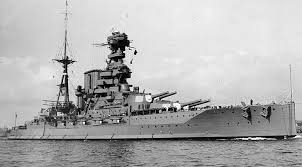⚓ A Bold Decision at the Edge of War
In the years leading up to World War I, the British Empire stood at a crossroads—not just politically, but technologically. The Royal Navy, long the world’s most powerful maritime force, was fueled by mountains of Welsh coal and powered by human sweat. But as war loomed and machines advanced, the Admiralty faced a radical question: should it switch the Royal Navy from coal to oil?
To most, it seemed unthinkable. Coal was abundant, domestic, and familiar. Oil was volatile, foreign, and uncertain. But one man, newly appointed First Lord of the Admiralty, saw the future in the flicker of a hotter, cleaner flame. His name was Winston Churchill, and he believed that the fate of Britain’s naval supremacy—and possibly the war itself—depended on making the leap.

🛢️ The Case for Oil
Churchill wasn’t interested in minor improvements. He wanted transformation. Oil-powered ships could steam faster, sail farther, and maneuver more quickly than their coal-fired counterparts. Refueling was faster and more efficient. Fewer stokers meant more room for guns, armor, and supplies.
The strategic implications were massive. But the risk was equally great: Britain had no significant domestic oil reserves. Adopting oil would make the Navy dependent on foreign supply chains—unless a solution could be found.
🤝 Securing the Source: Persia and APOC
That solution came in the form of the Anglo-Persian Oil Company. In 1914, Churchill orchestrated a historic move: the British government purchased a controlling stake in APOC, ensuring long-term access to Persian oil. This was more than a business deal—it was a strategic doctrine.
With APOC under partial state control, Churchill had secured a fuel lifeline for the Navy just weeks before Britain entered World War I. The switch from coal to oil wasn’t just happening—it was now backed by policy, investment, and empire.
🚢 The First Oil-Powered War Fleet
When the war began, Britain’s oil-fueled ships proved their worth. They outran German vessels, sustained longer blockades, and defended supply lines across a vast empire. The agility of the Royal Navy was no accident—it was the result of Churchill’s foresight and the decision to bet on oil.
The very definition of naval power had shifted. Guns and armor mattered—but so did fuel strategy.
🔚 A New Naval Era
Churchill’s decision to switch the Royal Navy from coal to oil reshaped military doctrine and energy geopolitics. He understood what few others did at the time: that energy, not just steel, would determine the strength of modern empires.
In doing so, he not only modernized the fleet—he redefined the nature of power itself.
